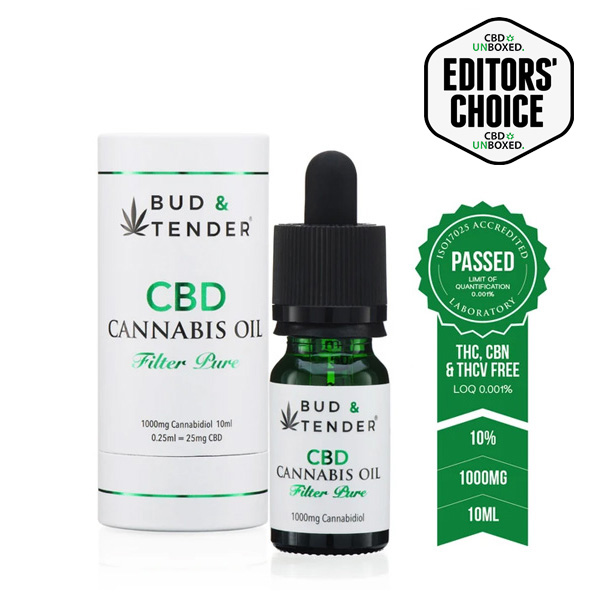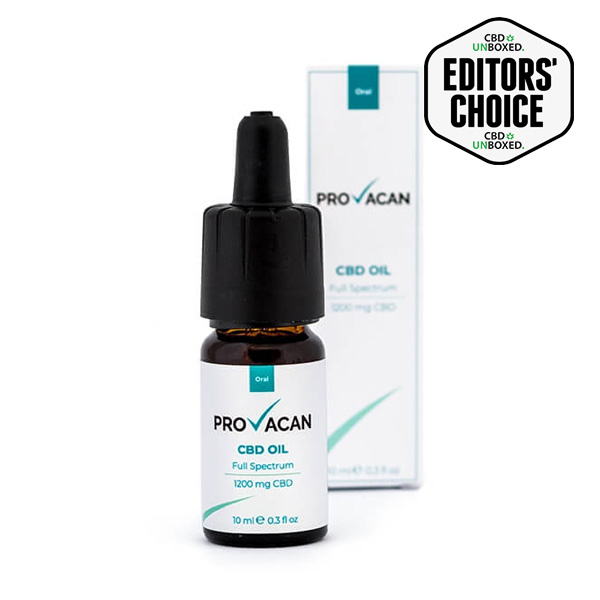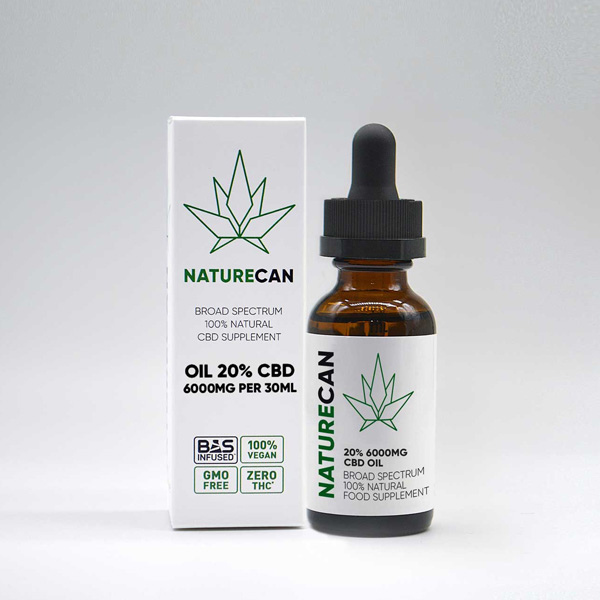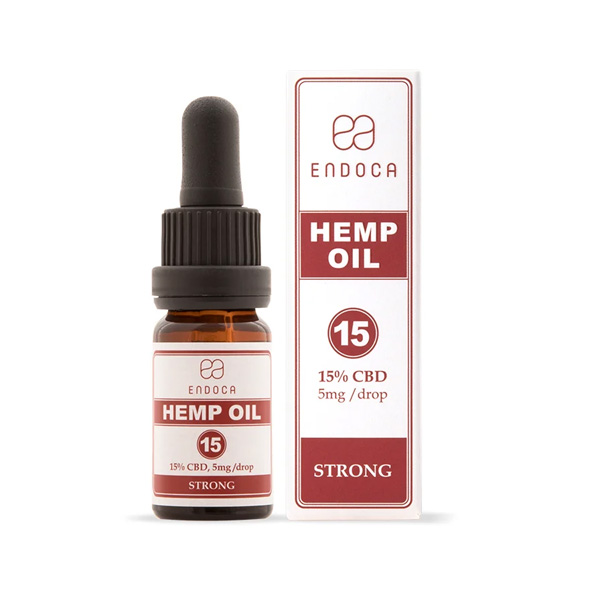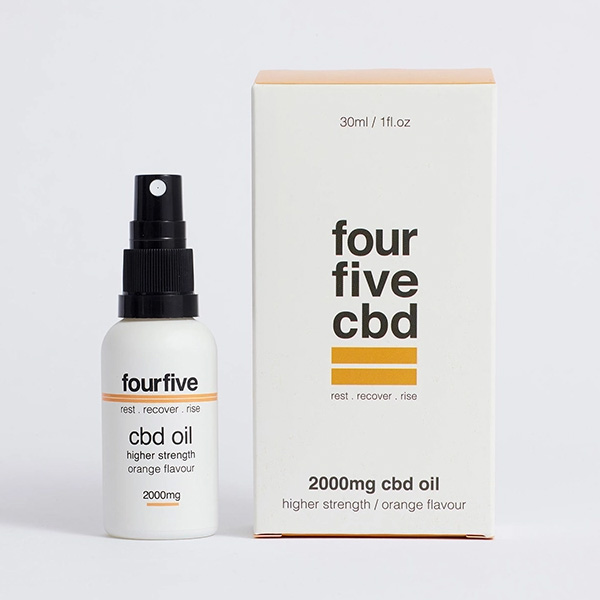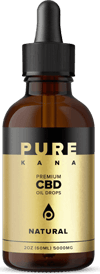New to CBD and not sure how much CBD oil you should consume daily or when to take it? Our CBD dosage chart breaks everything down for you based on your personal needs. We also list the Best CBD Oils we would recommend at the end of this article.
CBD Dosage
Cannabidiol — also known as CBD — is one of the multiple chemical compounds found in hemp (cannabis sativa) or marijuana plants. It is also known as medical cannabis, which is a broad term used to encompass any product, treatment, or medicine that includes cannabis-derived ingredients.
It is not however, the same as tetrahydrocannabinol (THC) found in marijuana and contains none of the psychoactive properties associated with it, which means CBD won’t get you “high”.
Preclinical and clinical studies show that CBD has health benefits and therapeutic properties, including:
- Analgesic: CBD relieves pain
- Antiarthritic: CBD relieves and prevents arthritic symptoms
- Antiemetic: CBD prevents nausea and vomiting (e.g. during migraine attacks or cancer treatment)
- Anti-Inflammatory: CBD reduces inflammation (redness, swelling, and pain) in the body
- Headache Disorders: CBD reduces the frequency and intensity of headaches and migraines
- Antidepressant: CBD reduces anxiety and depression
- Sleep: CBD helps fall asleep and stay asleep throughout the night
- Muscle Recovery: CBD helps with muscle recovery
- Anticonvulsant & Neuroprotective: CBD prevents and reduces the severity of epileptic fits or other convulsions and protects nerve cells against damage, degeneration, or impairment of function.
- Heart Health: CBD protects the heart by reducing inflammation
In this article we look at the recommended CBD dosage and break down how much CBD you should consume on a daily basis based on your personal circumstances including your previous experience with CBD products, your weight, the condition being treated, the severity of your condition and the concentration of the CBD product. We also explain how CBD oil works and provide links to purchase high quality CBD oils we’ve tried and tested.
Take our CBD Quiz
If after reading this guide you are still unsure about what products to choose, simply take our CBD Quiz which has been designed specifically to identify the product and strength that is best suited to your personal needs.
In order to work out the correct dosage, you need to take into account 4 key factors including your weight, the condition being treated, the severity of your condition and the concentration of the CBD product.
What is CBD?

Hemp vs Cannabis: What’s the Difference?
Different parts of the cannabis plant are either defined as hemp or as cannabis and marijuana.
- Hemp: hemp is the stalks, stems and sterilized seeds of cannabis sativa (“Cannabis Sativa” is the scientific Latin term that defines hemp, cannabis or marijuana plant species).
- Cannabis and Marijuana: the leaves, flowers and viable seeds of cannabis sativa.
The varieties of cannabis that are regulated, legal and available in the UK are those that produce less than 0.2 percent THC. And given the fact that most THC is in the flowers, CBD products are primarily made from hemp (stalks, stems and sterilized seeds of cannabis sativa) which contain very little THC and are safe to consume.
This is why CBD products are legal in the UK if they contain less than 0.2% THC.
How Does CBD Work?

CBD products seem to possess a number of therapeutic properties, which have been relatively well-researched and are backed by various scientific research papers and double-blind studies. Whilst the health benefits will be varied, for example a CBD infused topical cream will interact with your body in a different to a CBD oil, it is good to understand that a lot of the health benefits of CBD come from its interaction with the endocannabinoid system.
What is the Endocannabinoid System?
The human body contains a specialized system called the ECS (the endocannabinoid system), which aims is to regulate a variety of functions such as sleep, appetite, inflammation, memory, mood, reproduction, pain and immune system response. The body also produces endocannabinoids, which are simply neurotransmitters that bind to cannabinoid receptors in your nervous system.
As the largest biological system of receptors in the body, the main role of the ECS is to maintain balance, or homeostasis, within the body.
For example, when you get a fever because of the flu. The ECS jumps into action to help you return to your normal healthy self. It does this by sending and reading signals with endocannabinoids, enzymes and receptors.
Endocannabinoids are produced naturally within the body as and when they are needed. Their purpose to keep natural function within the body running smoothly. So far, specialists have discovered 2 types of endocannabinoids:
- anandamide (AEA)
- 2-arachidonoylglyerol (2-AG)
When the endocannabinoids realise something has changed within your body, and it is no longer in a state of homeostasis, it travels to a receptor to inform it.
Endocannabinoid receptors have been discovered all over the body on cell surfaces and CBD is believed to interact with specific receptors, specifically the CB1R and CB2R.
CB1 Receptors

CB1, which are located in various regions of the body, with a large concentration in the central nervous system and brain, co-ordinate mood, emotion, appetite, and other functions.
CB2 Receptors

CB2, are more commonly found in the immune system and are responsible for controlling inflammation and pain.
CBD stimulates these receptors and induces the body to release serotonin. Serotonin, or 5-HT, is a neurotransmitter that carries signals from one neuron to the other. CBD increases the level of serotonin, which, in return, helps reduce pain or reduce inflammation in the body as well as a multitude of other health benefits.
To see how CBD could help you, check out the article on the effects of CBD on the human body.
How Much CBD Should I Consume?

CBD doesn’t have one-size-fits-all dosing and calculating a proper dosage of CBD can be tough as our bodies react to it differently.
CBD Dosage Table
We would first recommend using the above CBD dosage table to determine how much CBD you should consume on a daily basis.
The four major factors affecting your CBD dosage are:
- Your weight
- The condition being treated (i.e. depression, chronic pain etc)
- The severity of your condition
- The concentration of CBD oil
Most brands recommend customers start with the lowest dose and increase until they find the right serving size that fits their needs. The most common starting amount is between 10mg and 25mg. For anxiety and depression, the dose can vary from 20mg to 50mg or more.
As a rule of thumb, a person weighting between 10.5 and 17 stones (approximately 150 and 240 lbs) may need between 20mg and 40mg of CBD per day depending on the severity of their symptoms.
When using CBD for the first time, we would always recommend starting with one or two drops of the 3% or 6% CBD oil placed under the tongue (sublingual) and holding it there for at least 30 seconds so it can absorb into the bloodstream.
Taking it first thing in the morning on an empty stomach to see how your body reacts to it is also recommended. If you are not seeing any major benefits with a single drop, increase your intake by a single drop every 2 or 3 days until finding the right balance to treat your personal symptoms.
Finally, as CBD remains a novel food, it is worth noting that the Food Standards Agency (FSA) recommends that healthy adults do not take more than 70mg a day, unless advised by a medical professional.
How Many CBD Oil Drops?
Whilst it may be confusing at the beginning, it’s incredibly simple to work out how many drops of CBD oil you need to take depending on your daily requirements and the strength of the product you bought.
Most bottles of CBD oil contain 10ml of product and come in strengths ranging from 300mg to 2,400mg – also known as 3% and 24% CBD oils. This simply means that in a 1ml drop of the 300mg bottle, you will have 30mg of CBD, whilst the same 1ml of the 2,400mg bottle will give you 8 times that amount for a total of 240mg of CBD.
So assuming you need to hit 25mg of CBD per day with, you will need:
| CBD / Bottle* | CBD / Drop | # Drops |
| 500mg | 1.25mg | 20 drops |
| 1000mg | 2.5mg | 10 drops |
| 1800mg | 4.5mg | 5.5 drops |
| 2400mg | 6.0mg | 4 drops |
*Based on 10ml bottles
Assuming you are using the 500mg CBD oil for a daily dose of 25mg, you will need to take approximately 20 drops per day (25mg divided by 1.25mg per drop). You could break this down throughout the day by taking:
- 8 drops first thing in the morning on an empty stomach
- 6 drops early afternoon
- 6 drops at night before going to bed
If however you bought the 2400mg CBD oil for a daily dose of 25mg, you would only need to take 4 drops per day (25mg divided by 6mg per drop), which you could also spread across the day – 2 in the morning, one in the afternoon and one in the evening.
As with everything, start with a small amount of CBD oil daily to make sure there’s no reaction, then increase slowly by a drop every 1-2 days until finding the right balance.
Is it Possible to Ingest Too Much CBD?
With CBD becoming an ever growing market, the Food Standards Agency (FSA) has classified CBD as a food supplement and issued a number of recommendations on its website. It is the first country in the world to set recommended limits for CBD consumption and to advise against taking CBD for vulnerable groups – including pregnant women and people taking existing medication.
For healthy adults, the FSA recommends not to take more than 70mg a day, unless it has been advised by a doctor. To put this into perspective, this is about 28 drops of 5% CBD or 14 drops of 10% CBD. This advice is based on the latest scientific information available to the FSA and levels given are for an average 70kg adult so one could deduct that the FSA has set a maximum target of 1mg of CBD per kg of bodyweight.
However, it is worth noting that several studies have found CBD to be safe at higher doses.
A 2011 review on the safety and side effects of cannabidiol found that “several studies suggest that CBD is non-toxic in non-transformed cells and does not induce changes on food intake, does not induce catalepsy, does not affect physiological parameters (heart rate, blood pressure and body temperature), does not affect gastrointestinal transit and does not alter psychomotor or psychological functions”. It also suggest that “chronic use and high doses up to 1,500 mg/day of CBD are reportedly well tolerated in humans.”
A follow-up review in 2017 using between 3-60mg of CBD per kg, well above the daily intake recommended by the FSA, showed that CBD intake “did not affect blood pressure, heart rate, body temperature, glucose levels, pH or gastrointestinal transit“.
However, it is worth noting that research on CBD dosage remains very limited and recent studies have suggested a correlation between high doses of CBD and potential liver damage.
We would therefore recommend following the FSA’s regulation and not ingesting more than 70mg of CBD.
How to Take CBD?

CBD can be consumed in may different ways and concentration will often vary from one product to another, so be sure to read the following.
CBD Oil

CBD oil can be used for a number of different reasons, including but not limited to pain relief, to improve sleep and insomnia, or for anxiety and depression.
CBD oil is simply an oil that is derived from the hemp plant. CBD extract from the hemp plant is mixed with a carrier oil (MCT oil, hemp seed oil and olive oil are the most common carrier oils for CBD products), in various concentrations to create the finished product.
The oil carrier is intended to have no effect on the effectiveness of the product but can alter its taste. CBD oil is sold in bottled form and known as a “tincture”, literally meaning something that is imbued with an amount of something else – for example, hemp seed oil that contains CBD extract. Most CBD oils come in 10ml bottles, but be aware that some brands sell CBD oil in 20ml and 30ml bottles which will affect the concentration.
CBD oil can be flavoured (mint, orange or lemon) or natural (just CBD and the oil carrier). Whilst flavoured options can be beneficial if you don’t like the taste of the pure extract, we would always recommend going for the natural option if the grassy or earthy taste of CBD oil doesn’t bother, as the less ingredients, the better.
If you want to buy CBD oil, check out the below recommendations from the CBD Unboxed team, as we’ve tried and tested over 150 different CBD brands.
CBD Capsules

Whilst one of the most common ways of taking CBD is by using CBD oil, a growing number of people have turned to CBD capsules as they are often more convenient than CBD oil and won’t leave a strong aftertaste in your mouth and throat.
Unlike CBD edibles and gummies, CBD capsules are usually made from two ingredients including CBD extracts and oil carrier such as MCT oil (coconut oil) or olive oil. The capsule itself is made of either vegetable cellulose (suitable for vegans) or bovine gelatine (not suitable for vegans).
A few products will include additional ingredients such as caffeine, vitamins, polysorbate emulsifiers, beta-caryophyllene, sorbitol, L-theanine, Rhodiola or water.
CBD capsules are one of the most convenient and discreet ways of taking CBD as they are portable, tasteless and contain a fixed amount of CBD per capsule, meaning you won’t need to worry about counting drops, as you would need to do with CBD oil.
Capsules can be bought in bottles containing of 7, 28, 30, 60 and array of concentrations, 5mg – 50mg per capsule.
If you want to buy CBD capsules, check out our article featuring the Best CBD capsules.
CBD Gummies

CBD gummies are exactly what they sound like – edible gummy bear sweets that contain Cannabidiol (CBD) and that can be used for a number of different reasons, including but not limited to pain relief, to improve sleep and insomnia, or for anxiety and depression.
They are one of the most convenient and discreet way of taking CBD as they are portable, tasty and contain a fixed amount of CBD per gummy bear, meaning you won’t need to worry about counting drops, as you would need to do with CBD oil.
CBD gummies are made in the same way as regular gummies, only with CBD extracts infused into the gelatine as part of the manufacturing process, the quantity of CBD varying depending on the strength of the bottle (from 10mg to 50mg+ per gummy).
A packet or jar of gummies usually has 30 or 60 gummies in it and the CBD strength ranges from 5mg-30mg per gummy. Gummies are not usually safe for vegans as they can contain bovine gelatine, so be sure to check what gelatine they are using.
If you want to buy CBD gummies, check out our article featuring the Best CBD gummies.
CBD Topicals & Creams

If your aim is to improve muscle recovery post workout, treat an inflamed muscle or tendon or simply to look after your skin, then CBD topicals may be a great option for you. Whilst these tend to vary, the most common topicals include:
- CBD body ad massage oils
- CBD infused creams
- CBD balms
- CBD salves
CBD topicals are quickly absorbed to help calm and soothe stressed out skin and tend to be rich in additional compounds such as antioxidants; cannabidiol, fatty acids, vitamin A or vitamin E, which protect the skin from mild irritation, redness and the signs of aging
However, whilst CBD balms are great, they are only for topical use and are often used in conjunction with other CBD products such as CBD oils or capsules.
CBD Drinks
As the UK population has become more and more health conscious, they have ditched sugary drinks such as sodas in favour of healthier options. And whilst CBD tinctures remain the most common way to consume CBD, CBD drinks have become the perfect alternative to sodas, especially since CBD is known to have several health and anti-inflammatory properties.
It’s important however, to make the difference between homemade CBD drinks and beverages that have been specifically developed by CBD manufacturers.
If you are adding your own CBD to a drink like water or even to your food, the vast majority of the CBD is going to get metabolised in your gut resulting in your intestines and your liver enzymes breaking down most of the CBD you ingested. In other words, your body is only going to absorb a tiny fraction of the CBD you originally added to your drink or food. This makes homemade CBD drinks a poor way of getting your CBD intake as there is a lot of wastage through the digestive system resulting in less than 5% of the CBD being absorbed by the body.
To bypass this problem, companies making CBD infused drinks have had to put another agent with CBD to help it dissolve with the main drink, be it water, wine or coffee.
CBD-infused drinks developed by manufacturers on the other hands, have benefited from years of research to figure out the best way to infuse the drinks with CBD to maximise its absorption. To do so, they have copied emulsion techniques that have been used in the culinary and pharmaceutical industries and use drug-delivery systems such as nano-lipid spheres or emulsifiers to increase the bioavailability of CBD drinks.
These binding agents hold onto tiny droplets of water and CBD oil molecules, which then disperse throughout the liquid in a way that appears completely dissolved. Without this process of ‘nanoemulsion’ the water and CBD oil molecules would separate.
CBD drinks contain on average 15-30mg of CBD per serving size, but new products have recently come onto the market offering 10mg of CBD per serving size whilst other have targeted the upper end of that scale with 40+ mg of CBD per drink.
CBD E-Liquids & Vapes

Whilst CBD vape or vape pens are commonly referred as using CBD oil, it is important to note that the CBD oil used for vaping is different from traditional CBD oil (called CBD tinctures).
This can be quite confusing for people who have never used CBD products before as CBD tinctures and CBD used for vaping or inhaling are both referred to as ‘CBD oil’. The best way to not get mixed-up is to differentiate them by calling CBD tinctures (which are ingested) “CBD oil” and by calling vaping products either “CBD vape oil”, “CBD vape juice” or “CBD distillate”.
CBD tinctures are strictly for ingestion purpose and should not be used for inhalation or vaping as these products were not designed to be exposed to high heats for vaporisation, unlike CBD vape juices and e-liquids.
CBD vape oil is made using a similar process to standard CBD oil in that it is derived from the hemp plant and use CBD extract. However, unlike CBD oil which use MCT or Olive oil as a carrier, CBD vape juices use thinning agents such as Vegetable Glycerin (known as VG), a thick, sweet liquid or Propylene Glycol (known as PG), a much thinner and tasteless liquid. It is the presence of these thinning agents that make the CBD juice ok to vape or inhale.
Products using Propylene Glycol tend to produce more of a “throat hit” than Vegetable Glycerin does, and as a result may simulate the feel of smoking better.
So what are the suitable types of CBD oil that can be used for vaping and inhaling. They broadly fall under five categories, with some products being disposable and others which can be refilled, a more cost-effective option in the long run:
Disposable CBD vape pens
As the name indicates, these CBD vape pens are small cigarette style pens which have been pre-filled with CBD vape oil and are disposable, meaning you will not be able to refill them. They work thanks to a built-in coil and battery. When the person smoking sucks on the mouthpiece of the vape pen, the battery sends a charge to the coil which causes the temperature to rise in the atomizer. This process heats-up the CBD vape oil in the cartridge and transforms it into vapor which can then be inhaled.
CBD vape pens are a great way to start as you do not need to worry about how they work or refilling them. Simply turn them on and start vaping. However, their longevity is usually limited to 100-150 large inhalations which is not idea if you are a heavier CBD smoker.
Refillable CBD vape pens
These work exactly in the same way as disposable CBD vape pens but are rechargeable so you can fill it up with your own CBD vape oil. It is worth noting that refillable CBD vape pens often produce more smoke, vapor and flavour than disposable ones as the built quality is better. Whilst they may require some basic maintenance such as changing the coil or cleaning the tank, they tend to be more cost-effective in the long run. However, they may not be as versatile as CBD pods since the oil inside the cartridge cannot be swapped for nicotine one without having to dispose of the CBD vape oil first.
CBD pods
JUUL e-cigarettes have become incredibly popular and use their own proprietary technology and vape pods. Their e-cigarettes look like small USB keys which can be recharged in an hour via USB port. They are a modern take on e-cigarettes and as such do not use traditional vape oil but small vape pods which are simply inserted into the e-cigarette.
Users can switch between standard nicotine pods (different strengths available) and compatible JULL CBD pods in an instant, making it the ideal solution for those who want to consume both nicotine and CBD without the hassle of having to carry two vape pens or having to refill them.
As with CBD oil cartridges, be sure to choose a product that is compatible with your e-cigarette. Whilst a lot of pods look the same as JUUL pods, be aware that they may not be compatible.
If you want to buy a vape pen, check out our article featuring the Best CBD vape pens.
What are the Side Effects of CBD?
Most people do not experience any side effects when taking CBD as this is a natural product. However, as with everything, some people may experience mild side-effects from the hemp extract, including:
- Diarrhoea
- Changes in appetite and weight
- Nausea
- Fatigue
- Irritability
- Drowsiness
The best way to decrease adverse reactions is to simply lower your daily intake of CBD, or if taking CBD oil under the tongue, to mix it with your food and drink as it will be processed by the digestive system – which means slower absorption. The downside of mixing it with your food is a decreased bioavailability so CBD may not work as well for you.
10 Recommended CBD Oils
With over 150 CBD brands on the market, it can be difficult to choose the right CBD product. This is why the CBD Unboxed team has tried and tested most CBD products and brands available in the UK market and assessed them across 7 key areas, including efficacy, taste, value for money, customer reviews, lab certification, product range, shipping & delivery and customer reviews.
Some of the most popular CBD brands we have reviewed to date include:
- Bud & Tender CBD Review
- Blessed CBD Review
- Provacan CBD Review
- Hempura CBD Review
- Endoca CBD Review
- Naturecan CBD Review
- Medterra CBD Review
- Love CBD Review
- Four Five CBD Review
Based on our findings and whilst every person will be different, we would recommend the below CBD oils to start with.
- 10ml bottle (1000mg of CBD)
- 10% concentration
- Approx 2.5mg of CBD per drop
- Broad spectrum CBD
- Zero THC
- Organic MCT carrier oil
- Entourage effect
- 30ml per bottle (3000mg of CBD)
- 10% concentration
- Approx 2.5mg of CBD per drop
- 99%+ Pure CBD (isolate)
- Zero THC
- MCT oil carrier
- 10ml per bottle (1000mg of CBD)
- 10% concentration
- Approx 4mg of CBD per drop
- Full spectrum CBD
- Less than 0.2% THC
- Hemp seed oil carrier
- Entourage effect
- 10ml bottle (1200mg of CBD)
- 12% concentration
- Approx 3mg of CBD per drop
- Full spectrum CBD
- Less than 0.05% THC guaranteed
- Olive oil carrier
- Entourage effect
- 10ml bottle (2000mg of CBD)
- 20% concentration
- Approx 8mg of CBD per drop
- Broad spectrum CBD (THC free)
- Organic MCT carrier oil
- Entourage effect
- Suitable for vegans
- 10ml bottle (1500mg of CBD)
- 15% concentration
- Approx 5mg of CBD per drop
- Full spectrum CBD
- Less than 0.2% THC
- Hemp seed oil carrier
- Entourage effect
- 20ml per bottle (2000mg of CBD)
- 10% concentration
- Approx 16mg of CBD per spray
- Broad spectrum CBD
- Zero THC
- Olive oil carrier
- Entourage effect
- 30ml per bottle (2000mg of CBD)
- Approx. 8.3mg of CBD per spray
- Approx. 240 sprays per bottle
- Broad-spectrum CBD
- Zero THC
- MCT oil carrier
- 10ml per bottle (1000mg of CBD)
- 10% concentration
- Approx 5mg of CBD per drop
- Full spectrum CBD
- Less than 0.02% THC
- Hemp oil carrier
- Entourage effect
Bud & Tender CBD
Bud & Tender CBD Oil 1000mg (10%)
£80.00
Medterra CBD
Medterra CBD Oil 3000mg (10%)
£89.99
Blessed CBD
Blessed CBD Oil 1000mg (10%)
£74.95
Provacan CBD
Provacan CBD Oil 1200mg (12%)
£69.99
Naturecan CBD
Naturecan CBD Oil 2000mg (20%)
£84.99
Endoca CBD
Endoca CBD Oil 1500mg (15%)
£119.00
Love CBD
Love CBD Entourage Oil 2000mg (10%)
£99.99
Four Five CBD
Four Five CBD Oil 2000mg (6%)
£90.00
Hempura CBD
Hempura CBD Oil 1000mg (10%)
£64.99
Take the CBD Quiz
Still unsure what product is best for you? Take our CBD Quiz to find out which CBD product, brand and strength is best suited to your personal needs.










